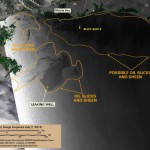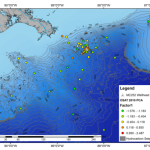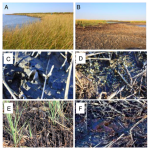Newsweek has a great write up about how independent scientific queries into the Gulf of Mexico are being squashed. Only are few scientists were able to benefit from the National Science Foundation’s 10.2 million dollars in the rapid response research program and conduct independent research. Most research is being conducted by those funded by BP or working explicitly for the government through the National Oceanographic and Atmospheric Administration. Thus, the legal battle between the government and BP on the impacts and eventual liability is driving scientific research not good science. Overall the article provides an alarming and disturbing picture of the state of affairs.
4 Replies to “Is Science on the Gulf Oil Spill Skewed?”
Comments are closed.






There is no doubt that BP has attempted to buy scientists for their case, but I see no indication that they’ve been anything other than spectacularly unsuccessful at that goal. In fact, what I’ve seen has only reinforced in my mind the integrity of the scientists involved (many of whom I know).
Yes, BP did establish a 10 year, $500 million dollar fund for research in the GOM. They distributed the first installments of those grants to nearly every lab in the northern GOM. So what? The BP money will be used to fund research, but the scientists are NOT paid by BP. In fact, when BP went to those same labs that received grant money and offered scientists $250/hr to work as consultants for them they were overwhelmingly rebuffed. For example, the Dauphin Island Sea Lab, my former home, got $5 million of the BP grant money yet when BP offered every member of the faculty there consulting positions, every single one of them declined. The same was apparently true all around the Gulf, with only a few of the scientists who were actually offered BP money accepting it.
Suggesting that BP’s contributions to research funding skews the science is buying into the same conspiratorial logic that scientists funded by the NSF or NIH are promoting the government’s agenda.
Mike,
Thank you for comments. I think the article suggests rather that the distribution of funds and the science that is actually being conducted is being dictated by BP and the government rather than scientists themselves. Little community driven initiatives, outside of the NSF proposal process for RAPID, is occurring. The majority of science being done is what BP and NOAA regulate and thus regulated by a legal process
Still, I don’t think that’s a valid characterization of the situation. The $50 million that BP has distributed from the GOMRI thus far has gone to the labs as large chunks for the labs to distribute to projects at their discretion. BP had a say in which labs got the money (which was most of them on the northern Gulf Coast) but the labs are the ones determining which projects get the funding. For example, you can see LSU’s solicitation for proposals here: http://www.lsu.edu/research/pdfs/LSU_BP_RFP_062510.pdf The DISL is even sending the proposals they receive out to Corpus Christi for independent review. That certainly seems community-driven to me.
Yes, NOAA has their own scientists as well as a few they picked up on contract who are being told what to look for. Likewise BP picked up a handful of paid consultants for their defense. And yes, they will probably spend more on research than the $510 million from GOMRI and RAPID. I have little doubt that both sides will be very selective in the type of research the undertake and how they play the blame game and CYA with the findings. I certainly agree that that is major reason for concern. However, both sides also require a 3-year confidentiality agreement on the work they produce for this case. That almost guarantees a 3-year monopoly of community-driven research in the literature, which will hopefully be enough time to produce a strong picture of what’s going on prior to NOAA and BP publishing their findings.
Will BP and NOAA produce skewed science? I have little doubt that they will. Will it dominate the picture? Ultimately, I think not.